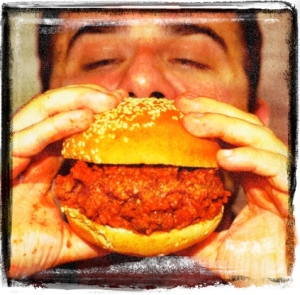Source: By Eve Mitchell as published in foodandwaterwatch.org
“…if you’re going to buy heavily processed foods you need to know this stuff –”
 It’s been a year since we were first told the beef we buy in the EU may actually be horsemeat, but we still don’t really know what happened, how far it spread, who is responsible, or how they will be called to account for themselves.
It’s been a year since we were first told the beef we buy in the EU may actually be horsemeat, but we still don’t really know what happened, how far it spread, who is responsible, or how they will be called to account for themselves.
We’ve seen a smattering of arrests, notably the September 2013 arrests of eight managers of the French company Spanghero on charges of aggravated fraud and mislabelling of food products. French authorities say they “knowingly sold” 750 tonnes of horsemeat mislabelled as beef. Around two-thirds of this went to French firm Comigel’s Luxembourg subsidiary Tavola and found its way into some 4.5 million products that were then sold again to 28 companies operating in13 European countries. This may be the source of the tainted Findus “beef” lasagne (100% horsemeat) found on UK supermarket shelves.
Sound complicated? It is, but if you’re going to buy heavily processed foods you need to know this stuff – unless you’re happy to just pinch your nose and swallow.
Justice is elusive. Accused of netting some €500,000 over six months of fraud(£425,000 or US$681,000), Spanghero had been stripped of its operating license in February 2013. It then closed in June, changed managers, sacked nearly 60% of its workforce, renamed itself La Lauragaise, refinanced and was trading again by the end of July – protesting its “innocence” all the way. Then came the arrests in September. The company’s new tagline “Saveurs des terroirs” (“The flavours of the land”, with heavy overtones of traditional cultural quality) feels like a bad joke.
Flagship arrests, while welcome, are not enough. Supermarkets sold us this stuff but are not feeling the heat. The UK Parliamentary inquiry into the affair quizzed supermarket bosses, pointing out to Tesco that it is “notorious” for rejecting misshapen apples but somehow managed to miss the fact that products labelled beef were actually up to 29% horse. The Tesco representative attempted to blame consumers, saying the company does what they want, but this didn’t wash with the committee, which retorted, “You obviously don’t [do what your customers want] on horse.”
The inquiry pressed that if beef is trading at a premium to horse, and with “unscrupulous people out there, as obviously there are,” surely supermarkets should watch cheaper products more closely. Tesco said each of its suppliers is scrutinised with the same ”rigour” (Tesco does one DNA test per year at each meat production site). Horsemeat was still being found in Tesco products as late as June, but as the Food Standards Agency only reports results over 1%, for all we know horsemeat is still masquerading as beef all over the place. At this stage it isn’t in anybody’s interest to say differently, and consumers have to take what they can get.
Supermarkets sell UK shoppers 80% of our food, so when they fail us, it is a big deal. Tesco pleads innocence, saying its supplier used unapproved suppliers further down the chain. The Committee’s July 2013 report concluding its inquiry said while some retailers may have been misled, the big ones “need to ‘up their game’”, and the costs should rest on companies, not consumers. The inquiry concluded, “Retailers and meat processors should have been more vigilant against the risk of deliberate adulteration,” instead of taking everything “on trust”. The Committee continued, “We are dismayed at the slow pace of investigations and would like assurance that prosecutions will be mounted where there is evidence of fraud or other illegal activity.” That was in July 2013.
So what has the UK Government done? Testifying before the inquiry in January 2013 Minister for Agriculture and Food David Heath MP announced a wide-ranging review of the crisis, but the report was kicked into the long grass and is not due before an unnamed point in 2014, with actual action who knows when after that. Meanwhile the inquiry heard the Government is proposing to decriminalise food labelling violations amid a declining number of public analysts and labs able to carry out food testing and budget cuts to the local authorities responsible for food testing.
UK Secretary of State for Food and Farming Owen Paterson said of the horsemeat scandal: “I think we came out of it very strongly.” On addressing the scandal he said, “Firstly we are bound by the rules of the European market,” although this is a notable departure from his feelings in other areas (Paterson calls Europe’s rules on GM food “medieval” and compares them to “witchcraft”). The annual review of his departmentshowed that fewer than a third of his staff have confidence in managerial decision making and fewer than a quarter think their management have a clear vision of the future. They are not alone.
Some say all this is proof that “Big Retail has government in an armlock”. It sure feels like they have shoppers under the other arm.
On 14 January 2014 the European Parliament passed a motion on food fraud that “deplores” that it has never been an EU enforcement priority and reiterates that “the retail sector has a special responsibility to guarantee the integrity of food products”. With supermarkets claiming innocence and the UK Government playing “hurry up and wait,” maybe the EU can force some action on our behalf.